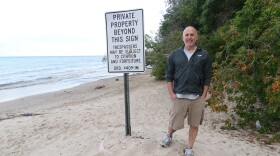It’s a common scene in sitcoms and films: Something chaotic happens, an older character looks overwhelmed, and they begin to grab at their chest. We all recognize it as the classic signs of a heart attack. But for many women, these scenes can be misleading.
Although heart disease is the most common cause of death for women in the U.S., cultural representations of heart attacks rarely present many of the typical symptoms for women.
Dr. Nicole Lohr is the medical director of cardiovascular clinical trials at Froedert. She says that while women can present with more classic symptoms of a heart attack, they're more likely to have "nondescript" symptoms.
She explains women might have "exertional breathlessness, that's just kind of [like], 'I'm fatigued, I'm tired — I feel kind of sad and down. I have nausea, I feel like I'm going to throw up.' There might be a little bit of tingling or maybe some neck and jaw pain."
"There is a reluctance to seek treatment for whatever reason — 'I don't want to be thought of as being foolish.' Some sense of denial, 'This isn’t happening to me.' "
Lohr says people should pay attention to any sudden on-set of these symptoms that persist, as they could be a sign of a heart attack.
Perhaps in part because women's symptoms are less well-known, Lohr says women are often hesitant to go to the hospital when experiencing these issues.
"There is a reluctance to seek treatment for whatever reason — 'I don’t want to be thought of as being foolish.' Some sense of denial, 'This isn’t happening to me,' 'I’m too busy,' 'It's just a little heart attack,' " Lohr explains.
Lohr believes that one of the most important things women can do as patients is advocate for themselves. Gender bias among medical professionals is a known problem and can lead to death, so asserting your needs (when possible) can be life-changing. Lohr says that doctors and nurses are also part of the solution to ending gender disparities in health care.
"As health providers, we have to recognize: how do we handle women who present with symptoms, have presentations that suggest they're having a heart attack? Do we act on them as quickly as we should?" she says.






